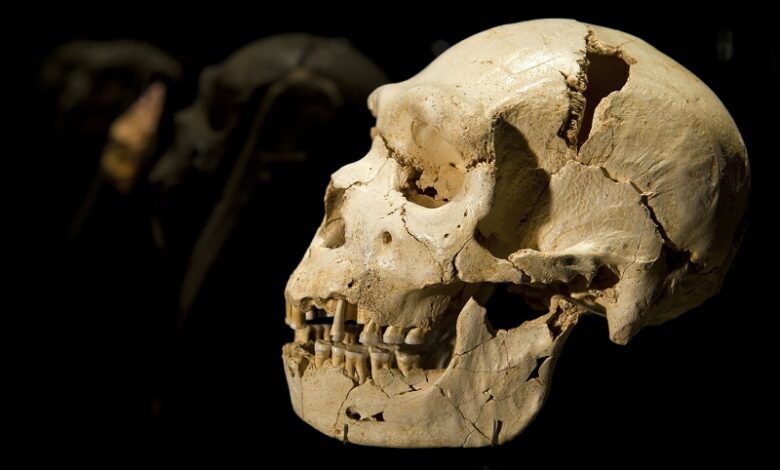Chinese Researchers Uncover Evidence of a Human Ancestral Population Collapse

Chinese researchers have recently unearthed compelling evidence suggesting that our modern human ancestors endured a catastrophic population collapse around 930,000 years ago, likely triggered by dramatic climate changes. This critical period, referred to as a “bottleneck,” witnessed our ancestors dwindling to a mere fraction of their population, with fewer than 1,280 breeding individuals surviving. Astonishingly, approximately 98.7 percent of human ancestors were lost during this event, posing a severe threat to their very survival.
The findings of this groundbreaking study were published on August 31st in the prestigious journal Science. This research has opened up intriguing possibilities about how a climate-induced bottleneck might have played a pivotal role in the divergence of early humans into two distinct evolutionary paths: one leading to the Neanderthals and the other to modern humans.
For decades, scientists have pieced together the intricate puzzle of human history through genetic analysis. They’ve harnessed the inherent biological clues contained in genetic mutations and how they are passed down through generations. With recent technological advancements in DNA sequencing, researchers can now compare complete genomes from diverse human populations with unprecedented accuracy.
Dr. Haipeng Li and his team at the Chinese Academy of Sciences in Shanghai developed a groundbreaking tool known as FitCoal. This innovative method allows researchers to model a million years of evolution, dissected into monthly segments. FitCoal has proven invaluable in unravelling the histories of various living organisms, including our own species.
Initially, the researchers focused their efforts on analysing animals like fruit flies. However, they later turned their attention to humans, conducting a comparative study of the genomes of 3,154 individuals representing 50 populations from across the globe.
Their extensive investigation led to a startling revelation: a near-extinction event had taken place among our human ancestors approximately 930,000 years ago.
Before this bottleneck, the ancestral human population was estimated to number around 98,000 breeding individuals. However, this number plummeted dramatically, leaving fewer than 1,280 individuals to carry the torch of human existence. Remarkably, this dwindling population endured for a staggering 117,000 years before eventually rebounding.
The scientists behind this groundbreaking study argue that the evidence aligns remarkably well with the fossil record of our human ancestors. The evolutionary tree of humanity diverged from that of other apes approximately seven million years ago in Africa. Over time, our ancestors in Africa evolved to be tall and large-brained. By one million years ago, some of these early humans embarked on a journey, migrating to Europe and Asia, where they would eventually evolve into the Neanderthals and Denisovans. Concurrently, our lineage continued to evolve in Africa, eventually giving rise to modern humans.
Despite decades of fossil hunting and meticulous research, a puzzling gap in the fossil record persists. The scarcity of remains from ancient human relatives in Africa between 950,000 and 650,000 years ago has confounded scientists for years. Critics have, understandably, demanded more conclusive evidence to substantiate the remarkable claims made by the Chinese researchers. While the findings are certainly groundbreaking, further studies and research are essential to strengthen this emerging narrative. The enigmatic gaps in the fossil record serve as a reminder that the story of human evolution is far from complete, and there are still many mysteries waiting to be unravelled in the annals of our ancient history. Nevertheless, this study offers a compelling glimpse into a pivotal chapter in our species’ past and a testament to the enduring resilience of our ancestors in the face of cataclysmic challenges.
News Mania Desk / Agnibeena Ghosh 12th September 2023






